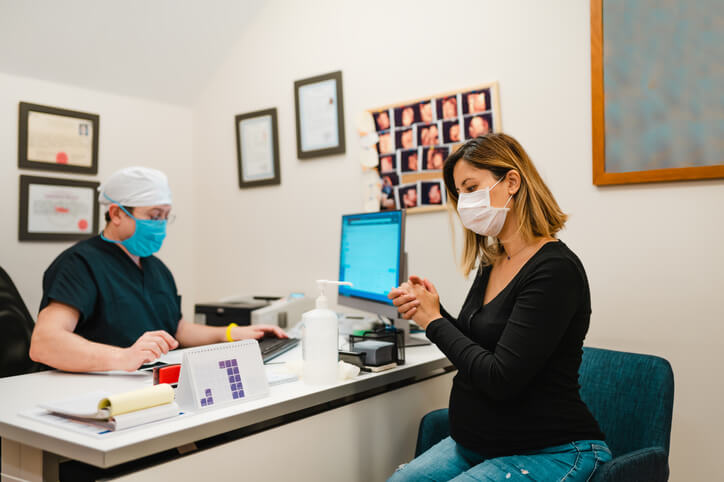There’s more than one way to become a parent. Assisted reproductive technology (ART) is becoming more common and widely accessible. This journey can be an incredible way to fulfill your dreams.
While becoming a parent through the surrogacy process is a deeply emotional journey, it is also a legal one. There are laws and regulations that need to be followed in order for any ART process to be completed successfully, legally and ethically. That’s why finding a good surrogacy attorney is so important.
This is true for intended parents and for women who are interested in becoming surrogates. This journey can change your life, and it’s important that you have a legal advocate looking out for your best interests.
Choosing a surrogacy attorney can feel overwhelming. It’s not like this is a decision you have prior experience with. Where do you even begin?
There are ways to make this choice easier. Intended parents and surrogates working with American Surrogacy will be referred to a trusted and experienced legal professional. However, the choice of which attorney to work with is still ultimately up to you.
Here are several things to consider when you’re mulling this over. Take your time selecting a legal professional — it can make or break your experience with this process.
Look for Experience
ART laws are constantly evolving, and they differ from state to state. It’s an area of practice that many family law offices are just beginning to specialize in. However, there are some who have been around longer than others.
You will want an attorney who knows their stuff — who has dedicated time and resources to becoming an expert in this area. Ask any potential attorney how long they have been practicing ART law and how many cases they handle in an average year. You can also ask if the attorney is a member of the Academy of Adoption and Assisted Reproductive Attorneys (AAAA).
This should weed out the offices that have simply tacked ART law onto their practice areas without really investing in it.
Learn Applicable Licensing Requirements
Each state has its own licensing requirements for attorneys, as well as unique surrogacy laws. If an attorney is not licensed in the right state, they will not be able to fulfill the necessary legal requirements of your process. For surrogacy, this means that the attorney should be licensed in the state the baby will be born. This may not be the state where you live if you are an intended parent. Keep this in mind as you consider lawyers to work with.
Pay Attention to How You Feel
While less technical than the other recommendations, this is no less important. How do you feel when you speak with the attorney? Do you feel safe or intimidated? Are you at ease or on edge?
Ask plenty of questions and trust your natural instinct. Peace of mind is an important feeling throughout this journey. You should work with an attorney who gives you confidence and makes you feel like everything is going to work out for the best — because it will!
Read Reviews
You can’t completely trust what people say online, but honest reviews do exist. Take a look at the reviews your attorney has on Google and other legal resource websites. Cross-reference any attorney you find on a search engine with the AAAA Directory.
While it may be uncomfortable, you could even ask about particular negative reviews you read. What happened there, and what has the office done to make things better?
Consider the Cost
Choosing an attorney is not the time for budget shopping. You get what you pay for, as the saying goes. Fees that seem too low to be true likely come with services that are less quality than desired.
With that said, it is important to understand your budget. Be honest about what’s doable for you. When you’re an intended parent, you are likely paying other agency fees and medical costs during the surrogacy process, and it’s important to not get in over your head financially. (If you’re a prospective surrogate, remember that your legal fees will always be paid for by your intended parents.)
When you ask an attorney about their costs, look for total transparency. Are these fees fixed? Will there be unexpected costs late in the process?
Some professionals will lure clients in with low-ball estimates only to spring hidden fees on them later in the process. A higher upfront cost with no hidden charges is preferable, and that is a sign you are working with an upstanding legal practice.
Learn More about Finding an Attorney for Surrogacy
One of the best ways to ensure you are working with a good surrogacy attorney is to also work with an excellent agency. American Surrogacy could be that agency for you.
It’s nearly impossible to start the surrogacy process on your own. By working with an agency, you can begin the journey and find a match for your process, either as a surrogate or as an intended parent.
Typically, all parties wait until a match is made to find an attorney. American Surrogacy can guide you up to this point, recommend trusted attorneys and stick with you through the end of the process.
Interested? Contact us today to learn more about starting your journey and finding the right ART attorney for you.









